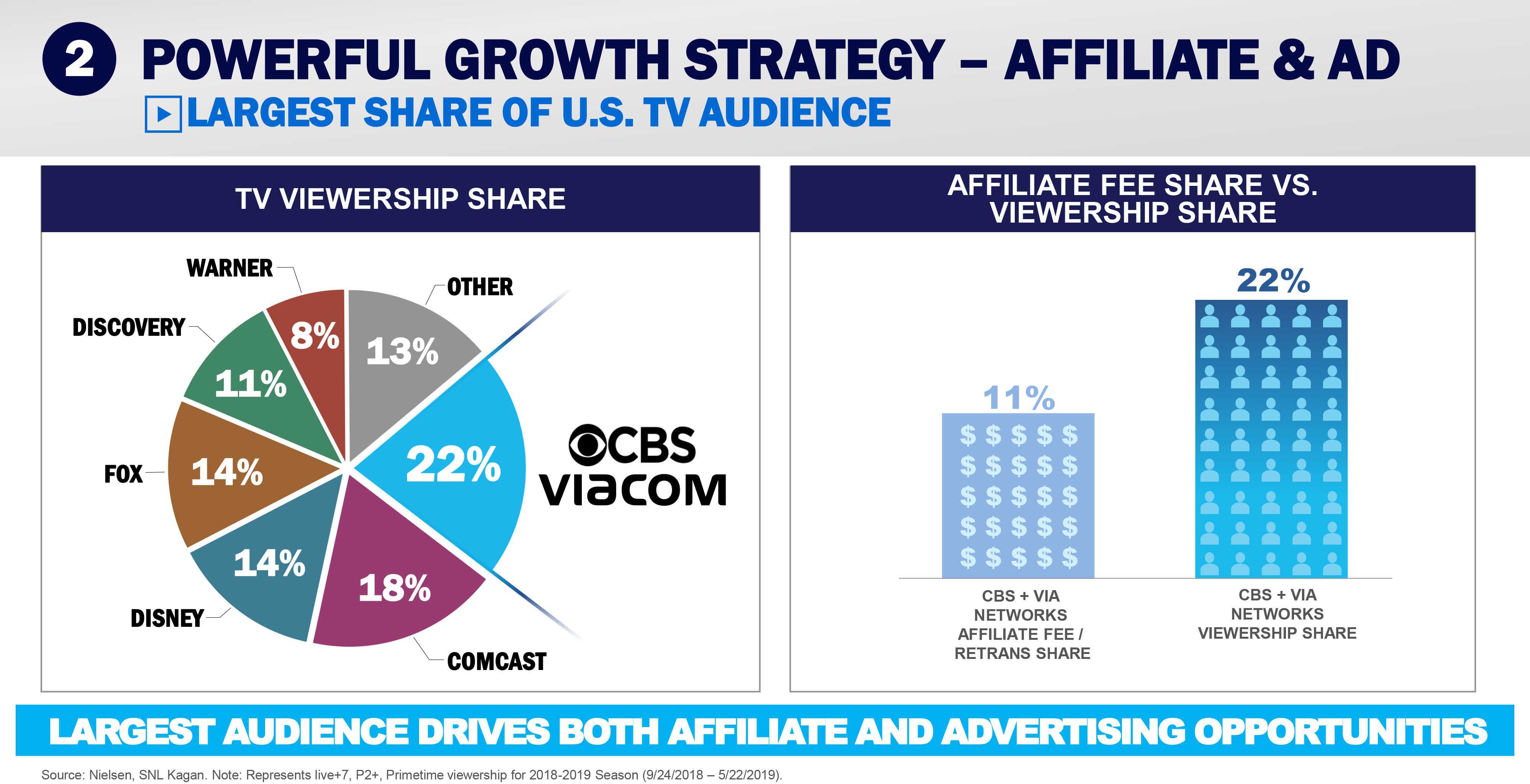ViacomCBS Remarriage Fails to Impress Investors
The smarter way to stay on top of the multichannel video marketplace. Sign up below.
You are now subscribed
Your newsletter sign-up was successful
CBS and Viacom executives will have a few months to convince Wall Street their $30 billion merger is all they say it’s cracked up to be, but the muted response from investors could make the job harder.

Shares of CBS and Viacom fell 8.3% and 8.5%, respectively, on Aug. 14, the first full trading day after the companies announced the merger, expected to close by the end of the year. The decline continued on Aug. 15, with each stock down 2.9%. In the two days since the announcement, Viacom and CBS each lost more than 10% of their stock values, resulting in a loss of more than $3 billion in market capitalization.
Even analysts who liked the deal cautioned it could be a hard sell, including MoffettNathanson analyst Michael Nathanson, who said the combined companies could help drive advertising yields and distribution of network assets.
Viacom and CBS were a combined company before, separating in 2005 and reuniting now at the impetus of principal shareholders Sumner and Shari Redstone.
“Judging by the tepid and languid reaction, the new company will have to work extra hard to prove the financial merits of this transaction,” Nathanson wrote in a note to clients.
For many, the question was never about how a CBS pairing would benefit Viacom. There are still skeptics about what upside the transaction brings to CBS.
Viacom’s Streaming Struggles
The smarter way to stay on top of the multichannel video marketplace. Sign up below.
Viacom has a stable of well-known core pay TV networks — like MTV, VH1, Comedy Central, Paramount TV, BET and Nickelodeon — and the Paramount Pictures movie studio that could be strong additions to CBS’s portfolio. But, despite some recent ratings growth, the networks have struggled in streaming TV.
Aside from the additional content brands, ViacomCBS will have a library of 140,000 TV episodes, 3,600 movie titles and more than 750 current series, either ordered or in production. It will be one of the biggest spenders on content in the business, shelling out more than $13 billion in the last 12 months alone.
Still, ViacomCBS will be dwarfed by The Walt Disney Co. (which paid $71.3 billion to buy Fox assets earlier this year), AT&T (which shelled out $108.7 billion to buy Time Warner Inc. last year) and Comcast (which bought NBCUniversal in 2013).
ViacomCBS will have considerable reach via its OTT products: CBS All Access, Showtime and Pluto TV should span 25 million homes by 2022. That is less than half of the 60 million domestic subscribers Netflix has now, though.
Some analysts believe ViacomCBS will need to be on the hunt for more acquisitions, with companies like Lionsgate Entertainment, AMC Networks, Discovery and Sony Entertainment bandied about as potential targets.
In an interview with CNBC, Viacom CEO Bob Bakish, who will lead ViacomCBS as CEO after the deal closes, did not rule out future acquisitions. “Just as we used M&A as a vehicle to accelerate our strategy at Viacom, we will potentially use M&A as a vehicle to accelerate our new strategy at a combined ViacomCBS,” he said. “But I’m feeling great about the hand I’ve now been dealt.”
Viacom now gets the backing of the No. 1 broadcast network in its next round of carriage negotiations. And its overall streaming assets are strengthened with the additions of CBS All Access and Showtime, with about 4 million paying subscribers each.
CBS acting CEO Joe Ianniello — who will become chairman and CEO of CBS once the merger closes — said on a call with analysts he saw “tremendous” opportunity in squeezing out higher retrans and affiliate fees as a result of the combination. He brought home the concept by revealing that the combined company accounts for 22% of total TV viewership, but just 11% of the revenue.
“There is significant revenue upside that we should be going after,” Ianniello said.
In a research note, Wolfe Research managing director Marci Ryvicker said just closing that gap by 100 basis points could translate into about $680 million of additional revenue.
Divergence on Fees
That’s crucial for Viacom, which has had to scale back on carriage demands as the popularity of its networks have declined, while CBS has managed to keep its retransmission-consent fee growth fairly steady. Viacom said in its last carriage deal with AT&T — parent to DirecTV, DirecTV Now and U-verse TV — that it agreed to a reduction in rates.
Nathanson said CBS retrans fees have grown from $110 million in 2010 to $1.7 billion in 2018, a compound annual growth rate of 40%. In contrast, Viacom’s affiliate fees have risen from $2.6 billion in 2010 to $3.7 billion in 2018, a CAGR of 4%.
“We have long believed that CBS would use their broadcast stick to drive higher Viacom cable affiliate fees,” Nathanson wrote.
Sanford Bernstein media analyst Todd Juenger, though, said the merits of the deal don’t add up. “We can only wonder how history will judge this decision,” he wrote in a research note. “Will it be three years, five years, or longer before the members involved with that decision look back and think, ‘Oh no, what have we done?’ ”
